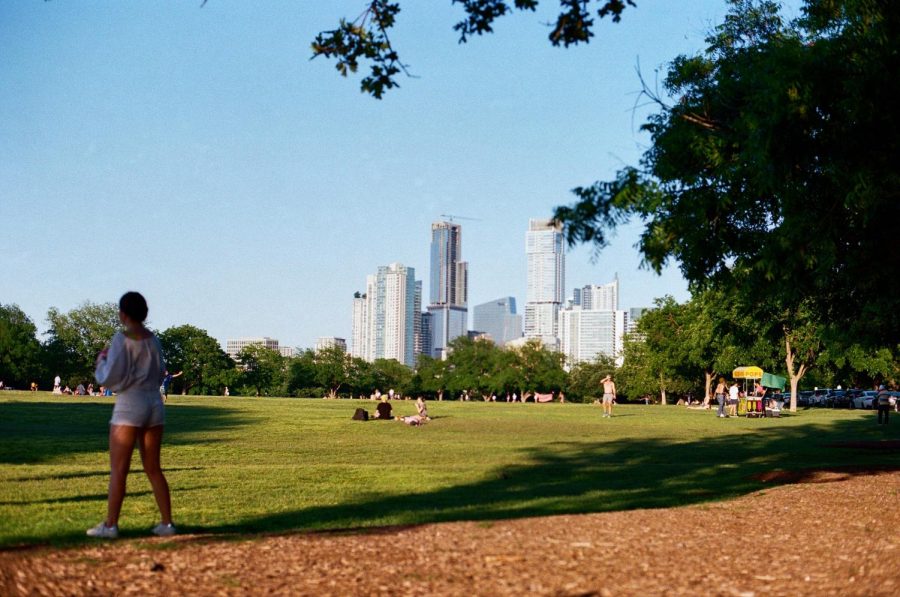Zilker Park revision plan faces opposition online despite accessibility, ecological upgrades
July 3, 2023
After its approval by Austin Parks and Recreation on May 22, the Zilker Park Vision Plan has received public opposition online from several groups. Save Zilker Park, a movement against the plan, has grown a prominent Instagram following.
The Vision Plan “outlines the long-term vision, principles, goals and strategies for the enhancement, management and operation of Zilker Park.” If implemented, the plan would create several parking garages, pedestrian and bike trails and bridges, a welcome center and more over the next one to three years.
In an email newsletter sent on June 27, Austin Mayor Kirk Watson said the Zilker Park Vision Plan would be part of a City Council work session on August 29. The council will then consider taking action on August 31. During that meeting, the Council will also hear from the public.
While the Vision Plan intends to address ecological degradation, accessibility issues and park operations, the creator of Save Zilker Park, who asked to remain anonymous, said that for some of these changes, “the cons are outweighing the benefits,” meaning they aren’t necessary because Zilker is self-regulating. She thinks that, most importantly, the plan lacks public support.
Gregory Montes, program manager of the City of Austin’s Parks and Recreation Department, said much of the opposition against the vision plan comes from specific neighborhoods.
“Those neighborhoods adjacent to the park had a different experience of the park,” Montes said. “(They) were very vocal about what recommendations they wanted in the plan … we started to see some differences, saying you (those neighborhoods) want X, but the community members want Y.”
Still, the creator of Save Zilker Park said several parts of the Zilker Vision Plan have proven unpopular among the Austin community.
“(The Vision Plan) would say, 13% of the people want to move the amphitheater to the Great Lawn,” she said. “But the reality is that 87% don’t want the amphitheater on the Great Lawn.”
As a frequent user of Zilker Park, public health junior Liesl Small opposes the Zilker Vision Plan.
“Having such a large green space that’s not urbanized is something that a lot of major cities don’t have,” Small said. “Putting parking garages or a formal concert venue would take that away from Austin and make Austin lose some of its charm, which has already been happening over the last few years.”
Montes said positions against the plan lack context or are misleading and that the Vision Plan explains the reasoning behind such changes.
Montes said Zilker Park needs “environmental enhancement and restoration” and that the proposed changes improve the unideal conditions in which many aspects of the park currently operate.
For instance, Montes said the proposed parking garages address environmental concerns about car pollutants running off into the creek and river. The relocated Zilker Hillside Theater is also fit for attendance demands, ADA accessible, and more convenient for performers to load and unload.
“When we have to enhance something … people are going to have to accept that because it’s for the greater good,” Montes said. “It’s part of living in the city, and it’s part of our city really trying to meet the demand of the people that live here.”



